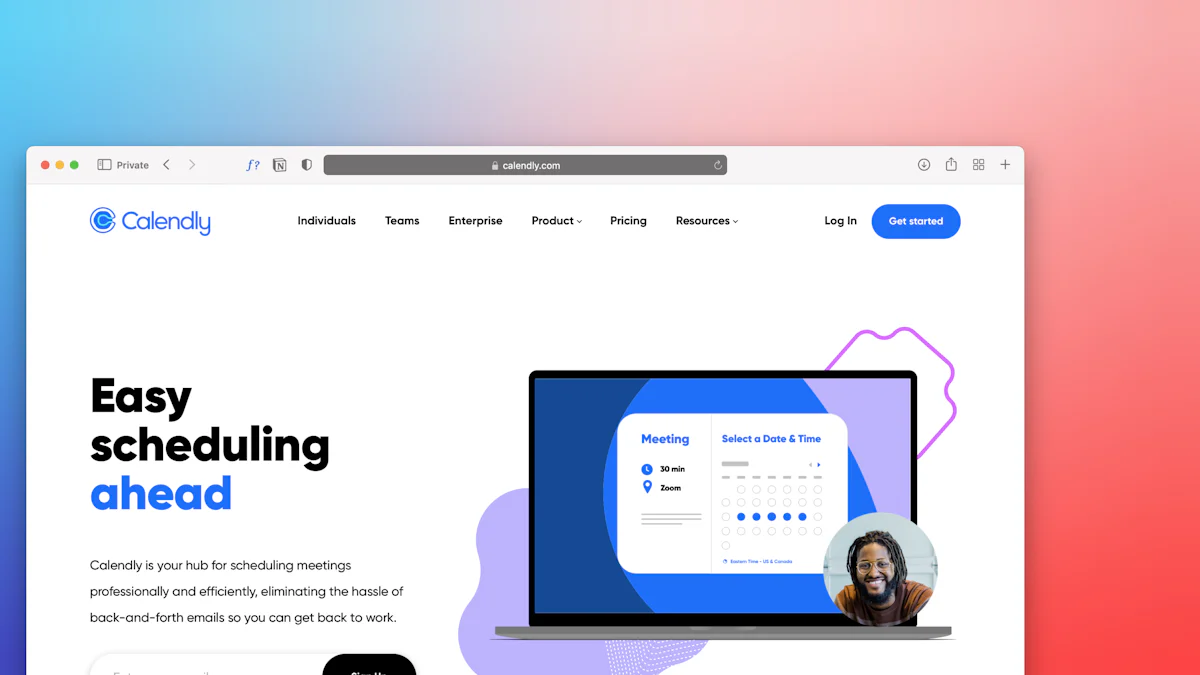The Complete Guide to Online Appointment Scheduling for Doctors

Online appointment scheduling for doctors has revolutionized the healthcare industry. Patients now prefer booking appointments online, with 73% favoring this method. This shift enhances patient satisfaction and streamlines administrative tasks. Doctors benefit from improved efficiency and better patient management. Many healthcare providers recognize the importance of integrating these systems into their practices. The adoption of conversational AI in healthcare, such as custom ChatGPT solutions, further enhances patient interaction. NewOaks AI offers innovative tools to support these advancements.
Understanding Online Appointment Scheduling
What is Online Appointment Scheduling?
Definition and Overview
Online appointment scheduling for doctors refers to a digital system that allows patients to book appointments through the internet. This system offers a convenient way for patients to select available time slots without needing to call or visit the healthcare provider's office. The software manages the entire booking process, including reminders and confirmations.
Historical Context
The concept of online appointment scheduling dates back to 1987 when a dentist developed the first system. This innovation revolutionized how appointments were made, laying the groundwork for modern digital scheduling solutions. Early computer technology played a significant role in automating administrative tasks, including appointment bookings. Before these advancements, patients had to travel to healthcare practices or make phone calls to schedule appointments. The introduction of online systems has significantly improved efficiency and patient experience.
Key Features
User Interface
A user-friendly interface is crucial for any online appointment scheduling system. The design should be intuitive, allowing both doctors and patients to navigate easily. Clear instructions and simple navigation enhance the overall user experience. A well-designed interface reduces the likelihood of errors and ensures smooth operation.
Integration with Existing Systems
Integration with existing systems is essential for seamless operation. Online appointment scheduling for doctors often needs to sync with electronic health records (EHR) and practice management software. This integration ensures that all patient information is up-to-date and accessible. Synchronization with calendars and communication tools further streamlines the workflow.
Security Measures
Security measures are critical in online appointment scheduling systems. Protecting patient data is a top priority. Encryption and compliance with regulations like HIPAA ensure that sensitive information remains secure. Regular security audits and updates help maintain the integrity of the system. Implementing robust security protocols builds trust among users.
Benefits of Online Appointment Scheduling

For Doctors
Improved Efficiency
Online appointment scheduling for doctors significantly enhances operational efficiency. Traditional methods often involve manual entry and phone calls, which consume valuable time. Automated systems streamline these processes, allowing healthcare providers to focus on patient care. The integration of online scheduling with electronic health records (EHR) ensures that all patient information is accurate and up-to-date. This reduces administrative burdens and minimizes errors.
Better Patient Management
Effective patient management becomes easier with online appointment scheduling for doctors. The system provides a clear overview of daily schedules, helping doctors allocate time more effectively. Automated reminders reduce no-show rates, ensuring that appointments run smoothly. This results in better utilization of resources and improved patient satisfaction. The ability to access patient history and preferences also enhances the quality of care provided.
For Patients
Convenience
Patients benefit greatly from the convenience offered by online appointment scheduling. The ability to book appointments at any time, from any location, eliminates the need for phone calls or office visits. This flexibility is particularly beneficial for those with busy schedules or mobility issues. The user-friendly interface of most systems makes the booking process quick and straightforward. Patients can easily select preferred time slots and receive instant confirmations.
Reduced Wait Times
Reduced wait times are another significant advantage for patients using online appointment scheduling. The system optimizes appointment slots, ensuring that doctors' schedules are efficiently managed. This leads to shorter waiting periods both in-office and for securing appointments. Patients appreciate the prompt service, which enhances their overall experience. Efficient scheduling also allows healthcare providers to see more patients, improving access to care.
Steps to Implement Online Appointment Scheduling
Choosing the Right Software
Key Considerations
Selecting the appropriate online appointment scheduling software involves several key considerations. First, evaluate the user interface. A user-friendly design ensures that both doctors and patients can navigate the system effortlessly. Second, assess the integration capabilities. The software should sync seamlessly with existing electronic health records (EHR) and practice management systems. Third, prioritize security measures. Ensure that the software complies with regulations like HIPAA and employs robust encryption protocols. Finally, consider the cost. Evaluate whether the software offers good value for money without compromising on essential features.
Popular Options
Several popular options exist for online appointment scheduling software. Square Appointments provides a mobile booking app with built-in POS functionality. Clients can book, reschedule, and cancel appointments through a web interface. Setmore offers a budget-friendly solution for businesses needing to schedule a high volume of appointments. This software also allows businesses to accept payments through the scheduling app. SimplyBook.me caters specifically to the medical industry, offering HIPAA compliance and highly customizable booking options. Each of these options provides unique features that can enhance the scheduling process for healthcare providers.
Setting Up the System
Initial Configuration
The initial configuration of an online appointment scheduling system involves several steps. Begin by inputting all relevant information, such as available time slots, services offered, and staff details. Configure automated reminders and notifications to reduce no-show rates. Ensure that the system integrates with existing EHR and practice management software. Test the system thoroughly to identify and resolve any issues before going live. This setup phase is crucial for ensuring smooth operation and minimizing disruptions.
Staff Training
Staff training is essential for the successful implementation of an online appointment scheduling system. Conduct comprehensive training sessions to familiarize staff with the new software. Focus on key functionalities such as booking appointments, managing cancellations, and accessing patient information. Provide hands-on practice to build confidence and competence. Offer ongoing support to address any questions or concerns that may arise. Well-trained staff will ensure that the system operates efficiently and effectively.
Integrating with Existing Workflows
Synchronization with Calendars
Synchronizing the online appointment scheduling system with existing calendars is vital for seamless operation. Ensure that the software integrates with popular calendar applications like Google Calendar. This synchronization allows for real-time updates and prevents double-booking. Automated reminders and notifications can be sent directly to both doctors and patients, enhancing communication and reducing missed appointments. Proper synchronization streamlines the scheduling process and improves overall efficiency.
Communication with Patients
Effective communication with patients is a critical component of online appointment scheduling. Use the system to send automated confirmations and reminders via email or SMS. Provide clear instructions on how to use the online booking platform. Offer multiple channels for patients to reach out with questions or concerns. Collect feedback to continuously improve the user experience. Enhanced communication fosters trust and satisfaction among patients, leading to better engagement and adherence to appointments.
Best Practices for Online Appointment Scheduling
Ensuring Data Security
Compliance with Regulations
Healthcare providers must comply with regulations such as HIPAA and GDPR to protect patient data. These regulations mandate secure storage and transmission of sensitive information. Providers should implement strong privacy policies and system-user identifiers. Regular audits ensure ongoing compliance. Non-compliance can result in severe penalties and loss of patient trust.
Encryption and Data Protection
Encryption plays a crucial role in safeguarding patient data. Providers should use SSL encryption to secure data during transmission. Nightly backups ensure data integrity and availability. Timed logouts prevent unauthorized access. Adhering to industry standards for data security minimizes risks and enhances patient confidence.
Enhancing User Experience
User-Friendly Interface
A user-friendly interface is essential for an effective online appointment scheduling system. The design should be intuitive, allowing users to navigate effortlessly. Clear instructions and simple navigation enhance the overall experience. A well-designed interface reduces errors and increases user satisfaction.
Mobile Accessibility
Mobile accessibility is vital in today's digital age. Patients should be able to book appointments using smartphones or tablets. Responsive design ensures that the system functions well on various devices. Mobile accessibility increases convenience and encourages more patients to use the online scheduling system.
Monitoring and Optimization
Regular Updates
Regular updates are necessary to maintain the efficiency of the online appointment scheduling system. Software providers should release updates to fix bugs and improve functionality. Healthcare providers should install these updates promptly. Regular updates ensure that the system remains secure and efficient.
Feedback Mechanisms
Feedback mechanisms help in optimizing the online appointment scheduling system. Providers should collect feedback from both doctors and patients. This feedback can identify areas for improvement. Implementing suggestions from users enhances the system's effectiveness. Continuous optimization leads to better user satisfaction and operational efficiency.
The Role of Conversational AI in Healthcare

Introduction to Conversational AI
Definition and Overview
Conversational AI refers to technologies that enable machines to understand, process, and respond to human language. These systems use natural language processing (NLP), machine learning, and deep contextual understanding. Conversational AI can interact with users in a human-like manner. This technology includes chatbots, virtual assistants, and voice-activated systems.
Applications in Healthcare
Conversational AI in healthcare has various applications. These systems can handle patient inquiries, schedule appointments, and provide medical information. They can assist in triaging patients by asking preliminary questions and directing them to the appropriate care level. Conversational AI can also remind patients about medication schedules and follow-up appointments. This technology enhances patient engagement and streamlines administrative tasks.
Benefits of Conversational AI for Doctors
Improved Patient Interaction
Conversational AI improves patient interaction by providing immediate responses to inquiries. Patients receive answers to their questions without waiting for a human representative. This leads to higher patient satisfaction and better engagement. Conversational AI can also personalize interactions based on patient history and preferences. This enhances the overall patient experience.
Streamlined Administrative Tasks
Conversational AI streamlines administrative tasks by automating routine processes. Online appointment scheduling for doctors becomes more efficient with AI-powered systems. These systems manage bookings, send reminders, and handle cancellations. Doctors can focus more on patient care rather than administrative duties. This leads to improved productivity and reduced operational costs.
Implementing Custom ChatGPT Solutions
Customization Options
Custom ChatGPT solutions offer various customization options. Healthcare providers can tailor these systems to meet specific needs. Customization includes configuring the chatbot to handle particular types of inquiries or integrating it with existing systems. Providers can also customize the language and tone to match their brand voice. This ensures that the chatbot aligns with the practice's goals and patient expectations.
Integration with Existing Systems
Integration with existing systems is crucial for the effective implementation of custom ChatGPT solutions. The chatbot should seamlessly connect with electronic health records (EHR) and practice management software. This integration ensures that patient information is accurate and up-to-date. Synchronization with online appointment scheduling for doctors enhances the overall efficiency. NewOaks AI offers tools that facilitate easy integration, ensuring a smooth transition to AI-powered systems.
Online appointment scheduling for doctors offers numerous benefits. Healthcare providers experience improved efficiency and better patient management. Patients enjoy the convenience of booking appointments at any time. The integration of conversational AI, such as NewOaks Chatbot, further enhances patient interaction and streamlines administrative tasks.
Adopting online scheduling systems is essential for modern healthcare practices. These systems meet the growing demand for digital solutions. Practices that offer online scheduling attract more patients who prefer this method.
The future of appointment scheduling looks promising. Continuous advancements in technology will further improve efficiency and patient satisfaction. Embracing these innovations ensures a competitive edge in the healthcare industry.
See Also
Transform Appointment Organization Using Personalized ChatGPT: Simplifying Walk-in Appointments
The Next Era in Ai Appointment Coordination: Improving Business Productivity
Mastering Appointment Reservation Chatbot Development with ManyChat
Optimize Lead Acquisition and Conversion Rates with ManyChat Appointment Scheduling
Enhance Your Efficiency: Microsoft Bookings vs Calendly - Choosing the Top Appointment Organizer

